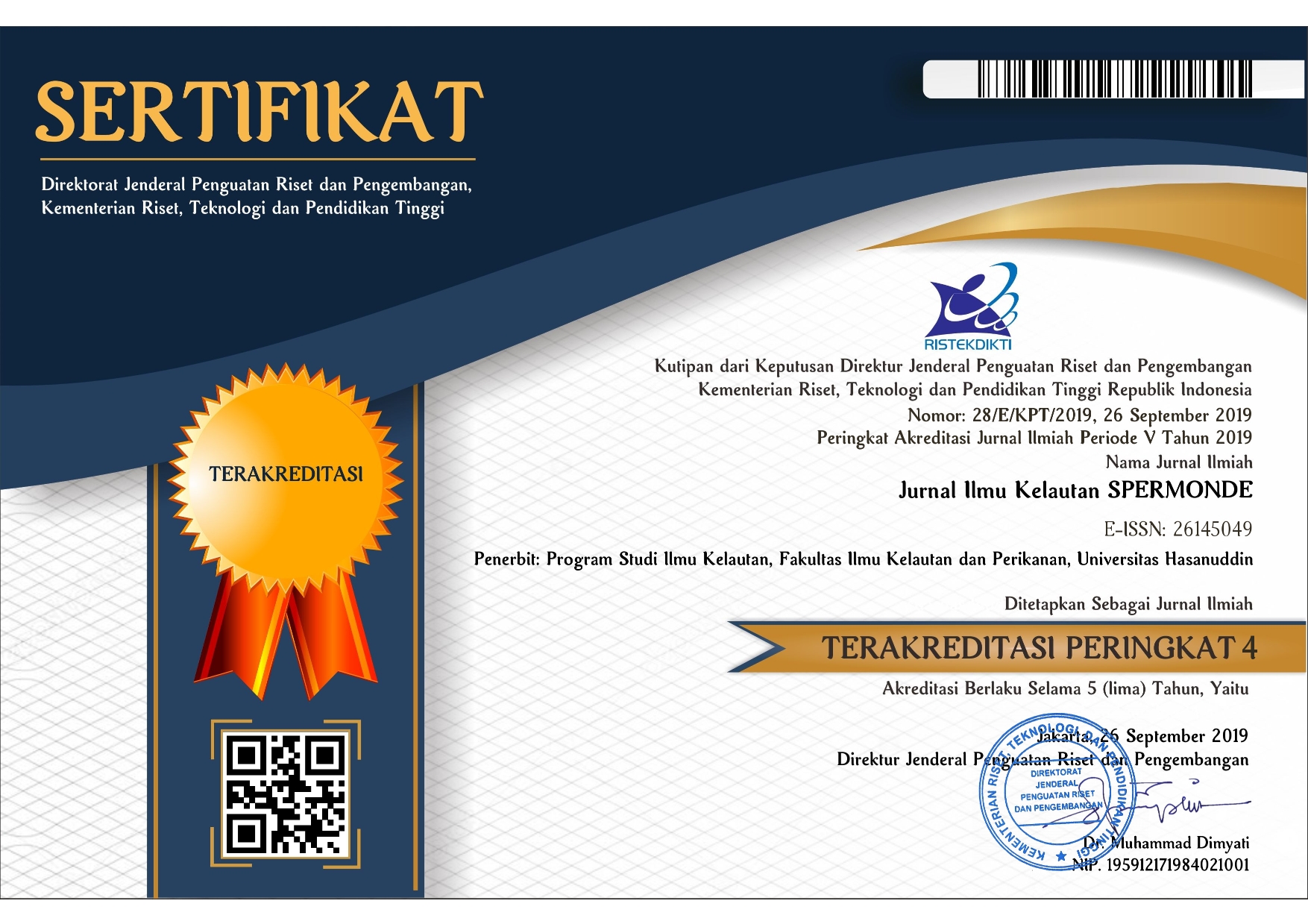CHECKLIST OF SEA CUCUMBERS SPECIES FROM BILUHU TIMUR WATERS, TOMINI BAY, GORONTALO, INDONESIA, BASED ON THEIR OCCURRENCE ON NEW MOON AND FULL MOON OF LUNAR PHASE
DOI:
https://doi.org/10.20956/jiks.v10i2.34890Keywords:
Sea cucumbers, Seagrass, Coral reef, Lunar phases, Biodiversity conservationAbstract
This study presents a comprehensive checklist of sea cucumber species found in Biluhu Timur waters, Tomini Bay, Gorontalo, Indonesia, across the new moon and full moon lunar phases. The survey identified eight species across five genera, including Actinopyga miliaris, A. mauritiana, Holothuria scabra, and H. leucospilota, noting significant distribution patterns influenced by lunar cycles and different biomes at three stations. Actinopyga miliaris and A. mauritiana, both classified as Vulnerable, were more active in the seagrass biome of Station I during the full moon. H. leucospilota, classified as Least Concern, was highly prevalent in the sandy substrate biome of Station II during the new moon, indicating a strong ecological association with that habitat. Stichopus horrens, classified as Data Deficient, showed notable activity in the coral reef biome of Station III. Environmental parameters such as water temperature, salinity, and pH were measured at each station to understand the conditions influencing these species. This study highlights the importance of lunar phases, biomes, and environmental variables on sea cucumber distribution. The findings underscore the need for conservation efforts that consider these factors to protect species vulnerable to overfishing and habitat degradation. Further research should include genetic analysis and expanded temporal and spatial scales to develop effective conservation strategies and sustainable management practicesDownloads
Download data is not yet available.
Downloads
Published
2024-08-05
Issue
Section
Articles
License

This work is licensed under a Creative Commons Attribution-NonCommercial 4.0 International License.

This work is licensed under a Creative Commons Attribution 4.0 International License










